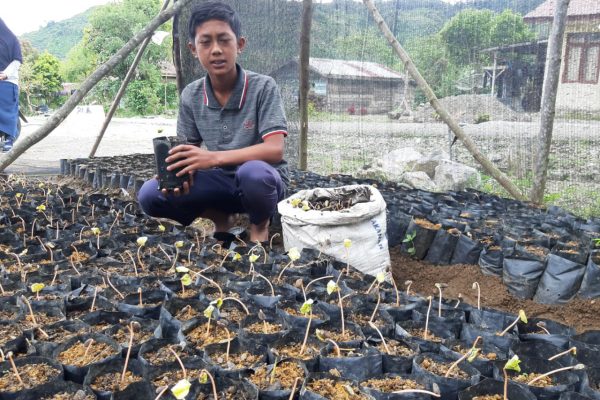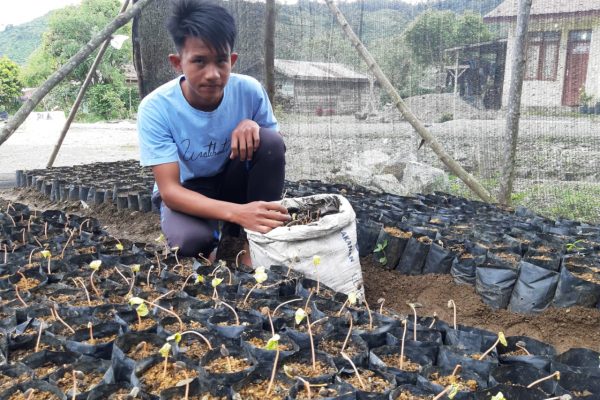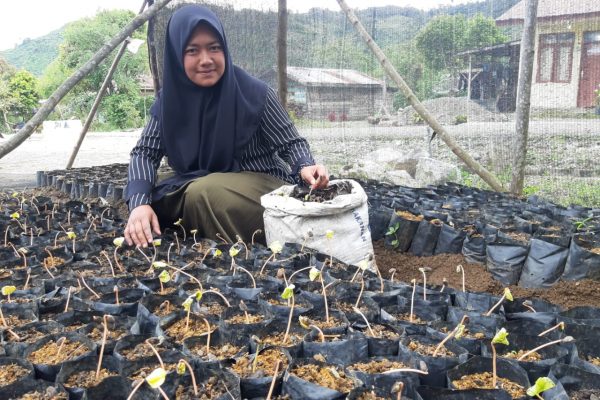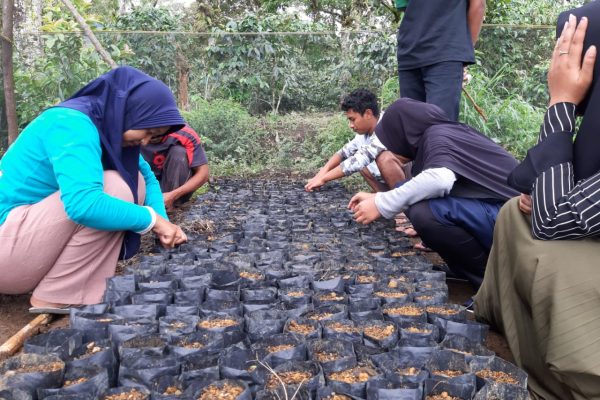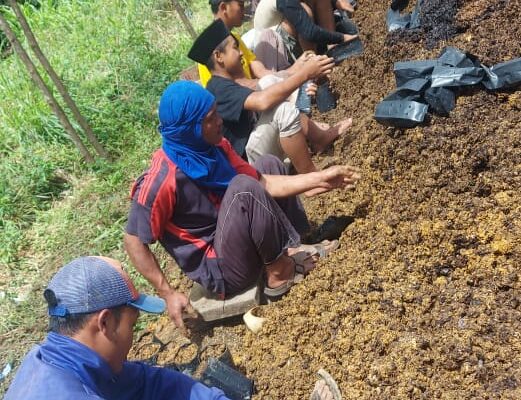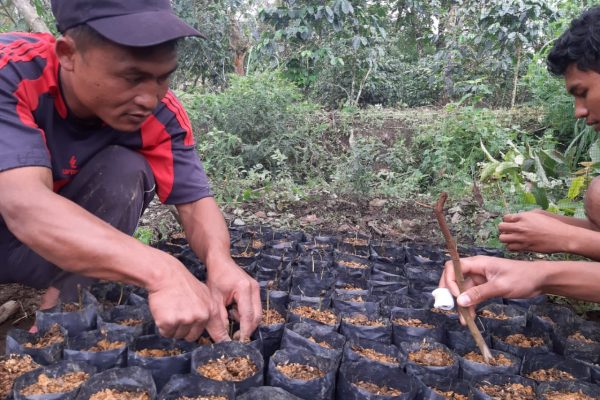The COVID 19 pandemic has been affecting the businesses of Fairtrade coffee cooperatives since the global lockdown in March 2020, due to the lockdown of shipping facilities in Indonesia and in its major export destinations in the USA and Europe, resulting in the delay and postponement of sales contracts. This further limited the ability of coffee cooperatives to purchase coffee beans from their farmer members leaving them with no choice other than to allow the members to sell it directly to any other local buyers/traders in the region. On the other hand, due to the crisis, there were very few local traders willing to purchase the products, leaving the coffee farming communities at the bottom to face the brunt of multiple economic and social challenges on the ground.
In the Asia Pacific region, the majority of Fairtrade coffee producers are in Indonesia, a country that is subjected to erratic weather patterns caused by climate change. Alongside the multiple hardships they encounter daily, the COVID 19 crisis is yet another challenge added to their long list of the ongoing battle against the decrease in productivity and quality due to the rising threat of crop diseases, weather shocks resulting from climate change, price fluctuations, to name a few.
Most of the SPOs in Indonesia had to invest a substantial portion of their Fairtrade Premium income from the previous year to support their members for distributing food items, thereby diverting the fund allocated for other priority needs such as farm rehabilitation and regeneration which are a necessity for organic farming. Additionally, aging trees and climate change also contribute to the loss of productive coffee trees resulting in an annual loss of up to 20 % of the coffee trees.
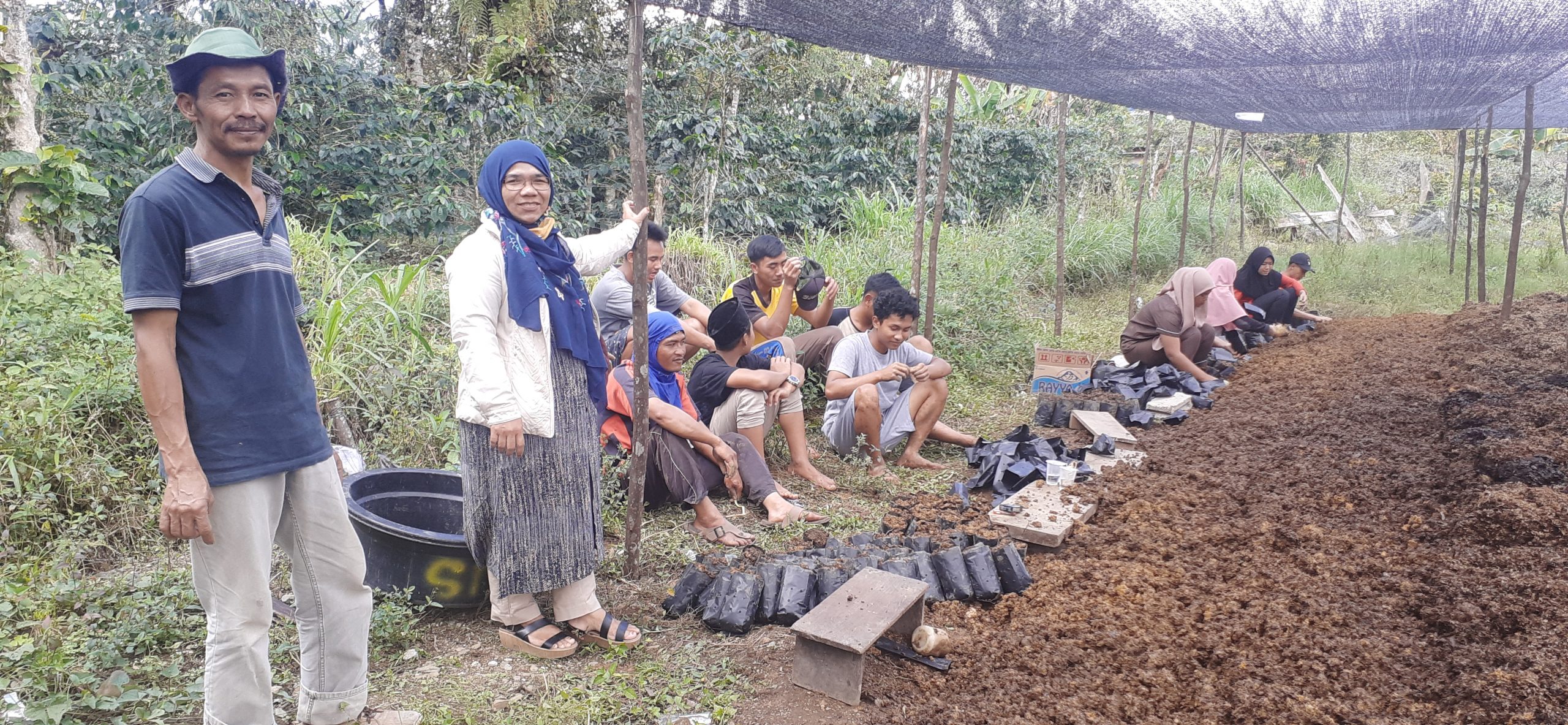 Pic: The youth involved in the CDP Project along with Wardah Hasyim ; Fairtrade Program Consultant of Indonesia
Pic: The youth involved in the CDP Project along with Wardah Hasyim ; Fairtrade Program Consultant of Indonesia
Therefore, the Network of Asia and Pacific Producers selected Koptan Gayo Megah Berseri; FLO ID 28568; a coffee producer organisation in the Gayo Highland to be supported with the setting up of a Community-Based Coffee Nursery Project to combat these challenges. The Project is supported by Max Havelaar Switzerland under the Fairtrade Coffee Development Plan. Through the Project, the cooperative will follow a new approach of distributing coffee seedlings by setting up a community-based nursery as opposed to the traditional approach of purchasing seedlings from the local nursery and distributing it to the members. The community-based nursery will create opportunities for more people to learn about nursery management. The knowledge and skills acquired through the Project will continue to generate benefits for the members in the long term by allowing the surrounding community to learn from their peers involved in the project. Alternately, purchasing seeds from the local businesses allows only a few people to acquire knowledge on nursery management.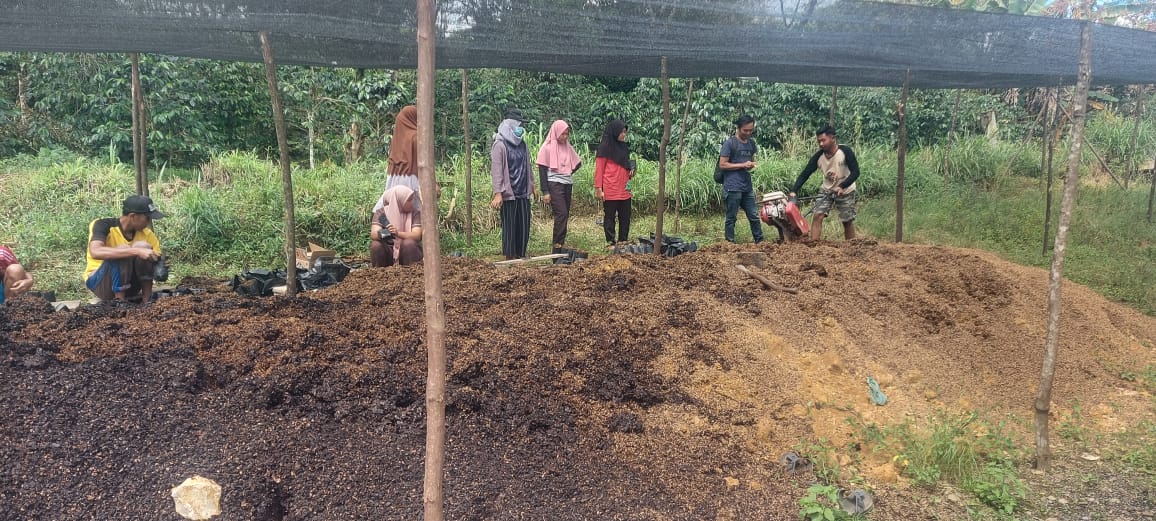
Coffee plants are unique and require specific location, altitude, and microclimate necessary for their growth. By allowing the members to manage the nurseries they can jointly take the decision to select the best variety that is suitable to their location for which they need to be trained on how to manage a nursery and the cherries for seedling can be purchased/ selected from the location itself. Whereas the local businessmen get their coffee bean from any resources if they find the recommended variety and good quality bean with a potential for high production. This makes the distribution of the seedlings through this mechanism not preferable and might not be suitable as per the location requirement.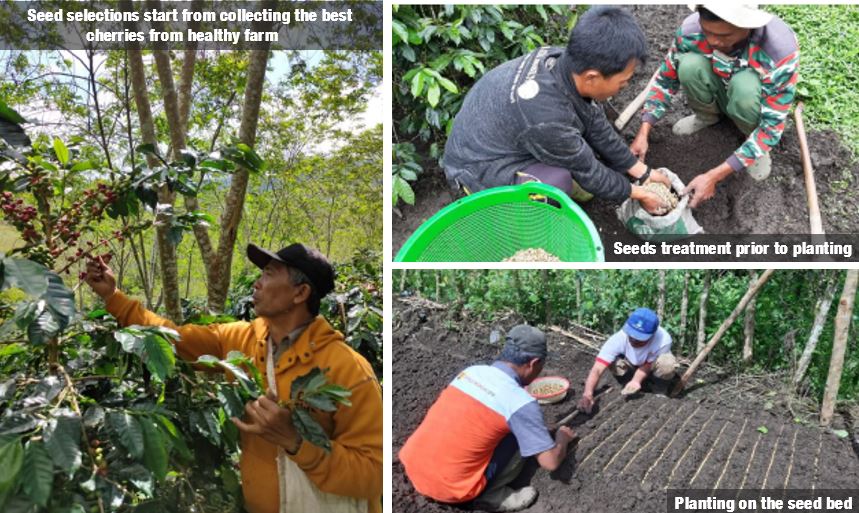
The Project investment has the potential to benefit members who are willing to manage their coffee nursery business. It also saves a large amount of funds which is normally used to purchase ready to plant seedling. The analysis of the budget invested for this project shows that each seedling needs 0.06 Euro while the price of each ready to plant seedling is about 0.17 Euro.
The Project started with the installation of 02 shades for the nursery in two locations:
In Gegarang village of the Jagung Subdistrict, the nursery is supervised by the lead farmer, Mr. Suwarno, and a delegate, Mr. Wagio. The lead farmer, Mr. Suarno is a skillful nursery manager who shares his expertise with other farmers on seed selection. Here the best cherries were collected and purchased from good farms and healthy trees in the community by the farmers. After the installation of the nursery shade, the seeds were planted into the seedbed. Meanwhile, polybags were prepared by 04 women and filled with soil and manure. The seeds will need 2 months on the seedbed and then moved to the polybags. After 06 months it will be ready for being planted on the farm.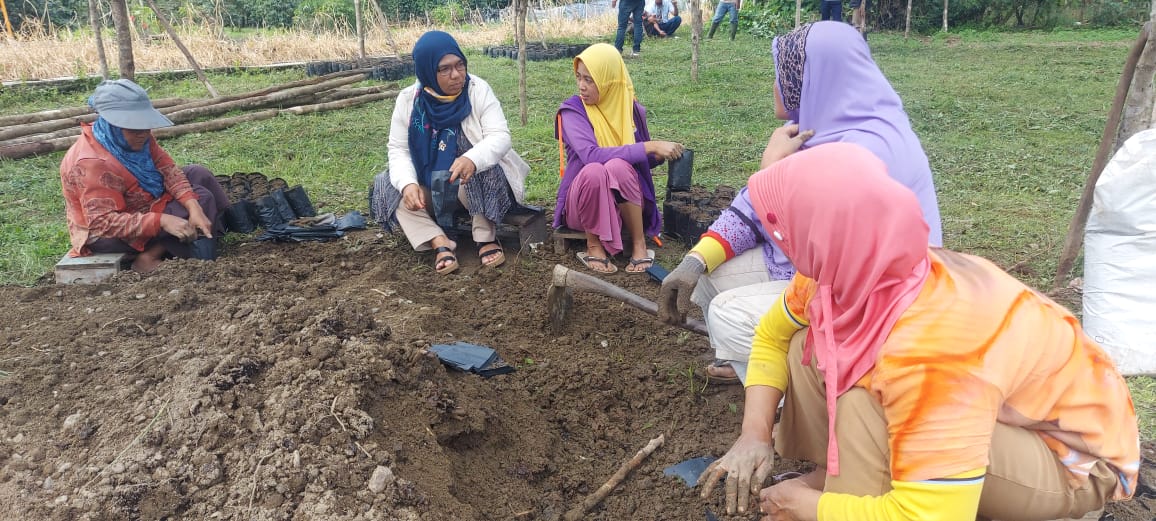
The other Project is located at the Jeget Ayu village of Jagung Subdistrict-Aceh and is approx. 60 Km from Takengon, the capital of Aceh Tengah district, or about a 2-hour drive from the city. The nursery is supervised by Mr. Sman, a delegate. Here, seeds were also collected from healthy trees from the member’s farm in the same village. The delegate took the initiative to use the project as an opportunity for the youth group (children of the members) to learn how to manage a coffee nursery. The youth support in the preparing of growing medium and filling it into the polybags. There are many youths in the village who have completed their senior high school but have discontinued their further education, due to economic challenges and the vast distance from the village to the higher education institution in the capital of the district. Therefore, most of the youth stay in the village and get involved in the coffee farms belonging to their parents. 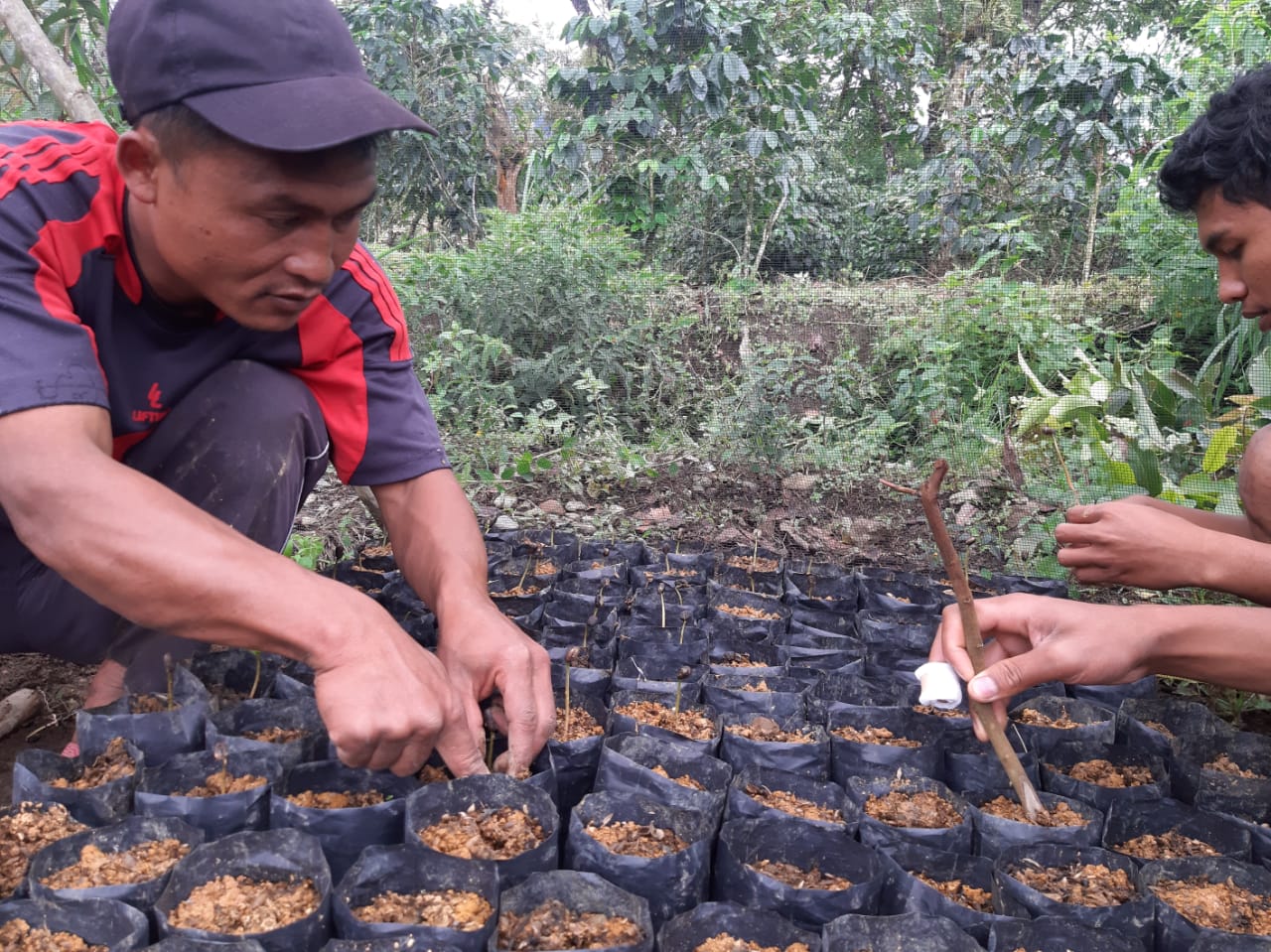
Ayu Isnan Pratama is a 19-year-old female youth who supports the work in the community.
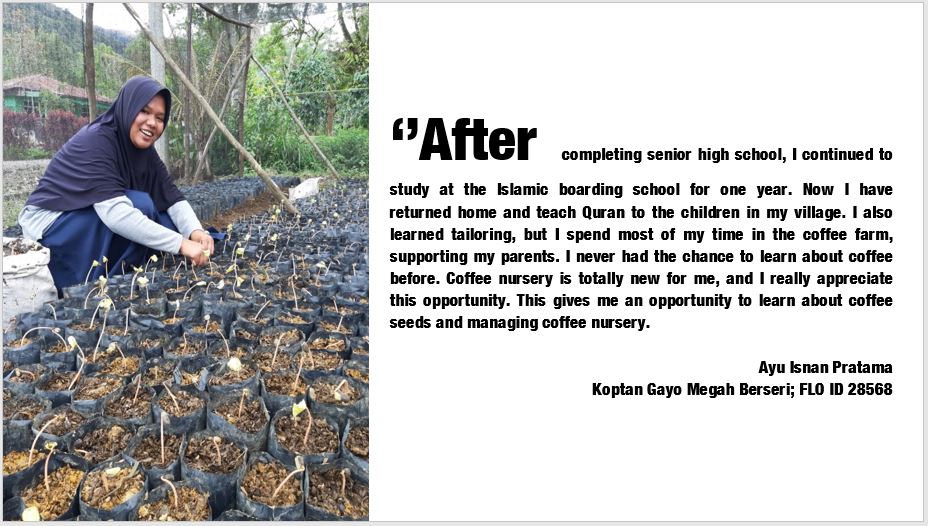
Husdianto is a 19-year-old male youth who leads the youth group in Jeget Ayu village.
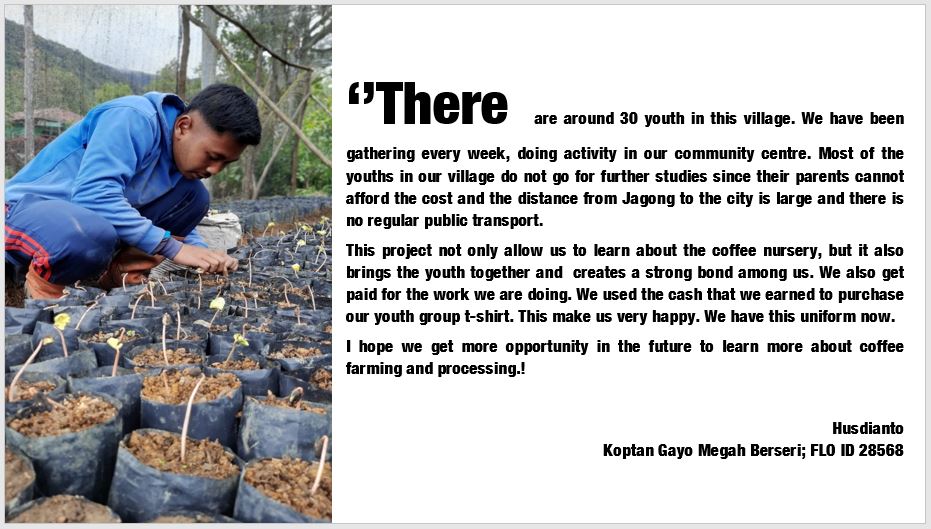
The Community based coffee nursery project encourages and allows youth to participate and utilise the opportunity to be trained in coffee nursery management. There are over 20 youth who have taken part in the project. Through the project 100 Coffee seedlings will be distributed for every Ha of the coffee farm. The total size of the farm covered in the project is 1090 Ha, benefitting 1021 smallholder members of the cooperative. The Project started in Sep 2020 and will be completed in a span of 9 months I.e., June 2021.
VIEW GALLERY


